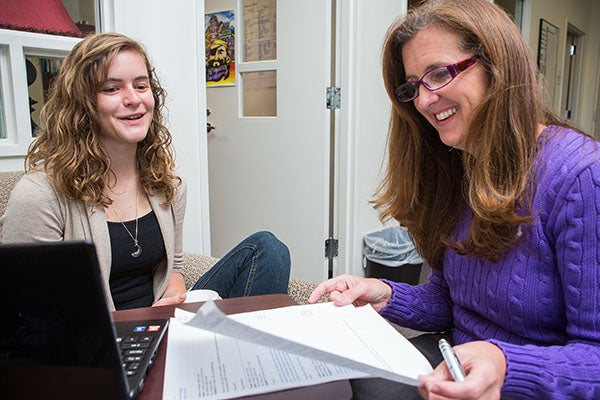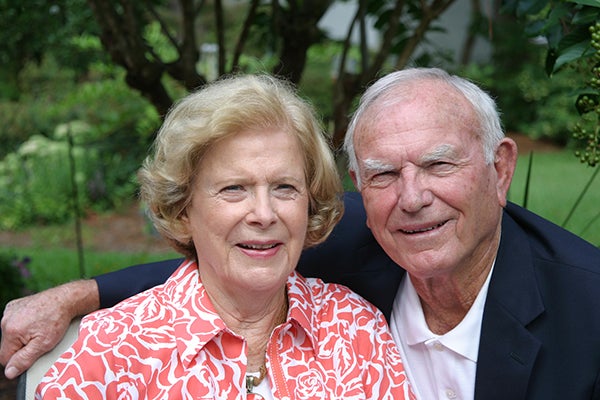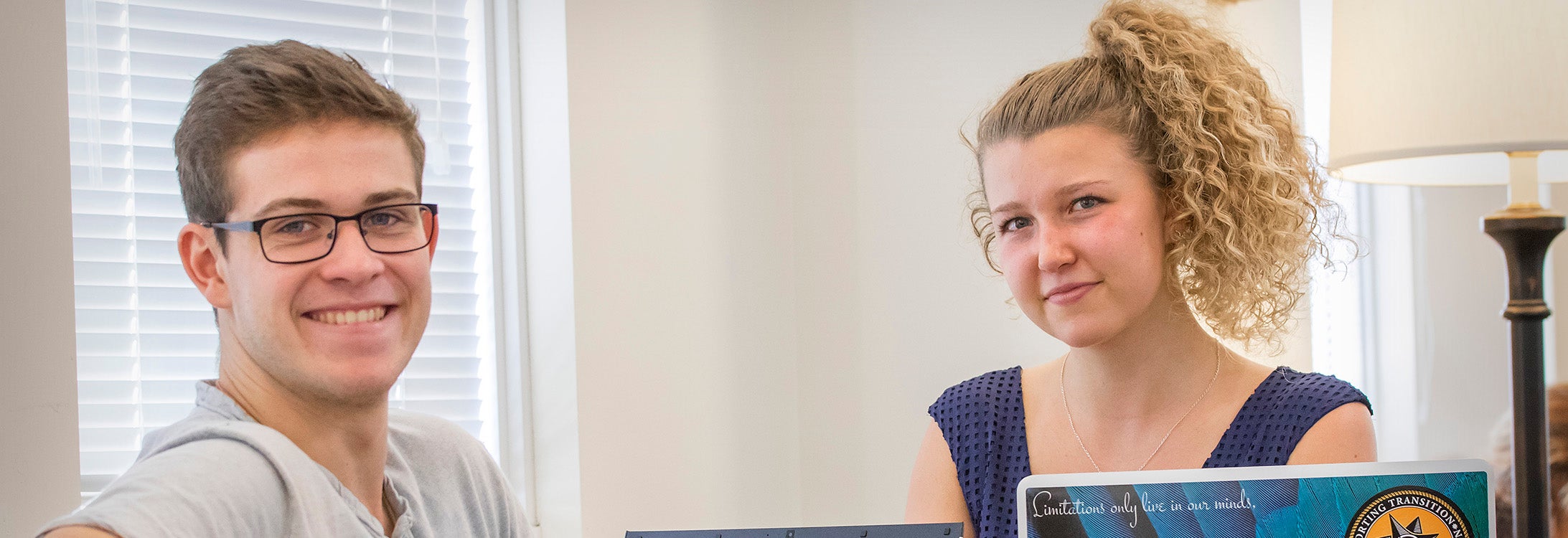LEARNING DISABILITIES AWARENESS MONTH
ECU highlights student support during Learning Disabilities Awareness Month
For many students with learning disabilities, the idea of college is just that — an idea. Students with learning disabilities attend four-year colleges at half the rate of other young adults, even though they are just as capable as their peers, according to the National Center for Education Statistics (NCES). And those who do attend college are less likely to complete it.
College seemed unlikely for Emma Parkes, a student with nonverbal learning disabilities in math and reading comprehension. Then she heard about a program at East Carolina University that could make her college dreams a reality.
In honor of Learning Disabilities Awareness Month, ECU is highlighting the STEPP Program, (Supporting Transition and Education through Planning and Partnerships), which provides academic, social and life skills support for students with identified learning disabilities. The program accepts 10 new students each fall semester and provides support at no additional cost to the students and their families.
Between admission and entry to the university, STEPP mentors partner with families and schools to help incoming students plan for the transition to college life. STEPP participants take a reduced course load during their first few semesters and have access to a network of professionals across ECU’s campus including advisors, mentors, tutors, counselors, professors, specialists and other experts. Prior to graduation from ECU, STEPP staff assist students in preparing to transition to a career or graduate school.
“When I heard about STEPP, ECU became my number one choice for college. I didn’t even really consider other schools because I knew it was exactly what I needed to succeed,” Parkes said. She is on track to earn a degree in family and community services next year and plans to go to graduate school, a goal that seemed unachievable four years ago.
“A task that might take a typical student 10 minutes to complete may take me an hour,” Parkes said. “But the STEPP resources make all the difference in the world.”

STEPP program director Sarah Williams, right, helps a student in the cove at Joyner Library.
(File photo by Cliff Hollis)
“Some people may mistakenly assume that the term ‘learning disabilities’ somehow implies reduced capacity to be successful in higher education. This is a myth,” said Dr. Sarah Williams, director of STEPP. “Students with learning disabilities are bright and capable students who often have to work diligently in the background to develop academic routines that match their methods of learning. Our program seeks to help students develop those understandings and build those routines.”
A learning disability is a neurological disorder that affects information processing. More than 200,000 students entering college in 2017 had some type of learning disability, according to the NCES.
West Williams, a communications major graduating in December, said one of the most helpful aspects of STEPP is access to an advisor who understands how he learns best and can recommend a complementary course load. Williams has dyscalculia, a math learning disability, and dysgraphia, a learning disability that affects writing, and needs extended test time.
“The resources they provide help us have a safe haven on campus,” he said. “STEPP gave me the opportunity to have the true college experience.”
STEPP has a reserved space in Joyner Library called “the cove” where students can study and receive tutoring and mentorship. For Grant Mackey, a junior from Charlotte, his attention deficit and hyperactivity disorder (ADHD) and dyslexia make other library areas too busy and distracting.

The STEPP program began in 2007 with a start-up gift from donors Walter and Marie Williams. The program is funded primarily with private gifts, which are crucial to keep it operating. (Photo provided by the STEPP program)
“STEPP has quieter study spaces and mentors to keep you on track,” he said. Mackey goes to the cove to study two to three times per week. “It’s affected me greatly and I appreciate all of it,” he said of the program.
STEPP began in 2007 with a start-up gift from donors Walter and Marie Williams. It is funded primarily with private gifts, which are crucial to keep the program operating.
“Many support programs for students in university settings are located in private colleges or require additional student fees for access to services. This can make the support, and possibly college, out of reach for some students. We have not found another program that offers the comprehensive array of services available through STEPP at no additional cost to students,” Dr. Williams said. “The generosity of donors is critical to enable us to continue to admit and serve students for years to come.”
Without STEPP, students like Parkes would have struggled more in college and had trouble keeping their grades up. “It’s scary to think about,” Parkes said. “Donor support hasmade college a much better experience for everyone in the program. It’s incredible.”
To learn more about the STEPP Program visit ecu.edu/stepp. To support the program, visit give.ecu.edu/stepp.
